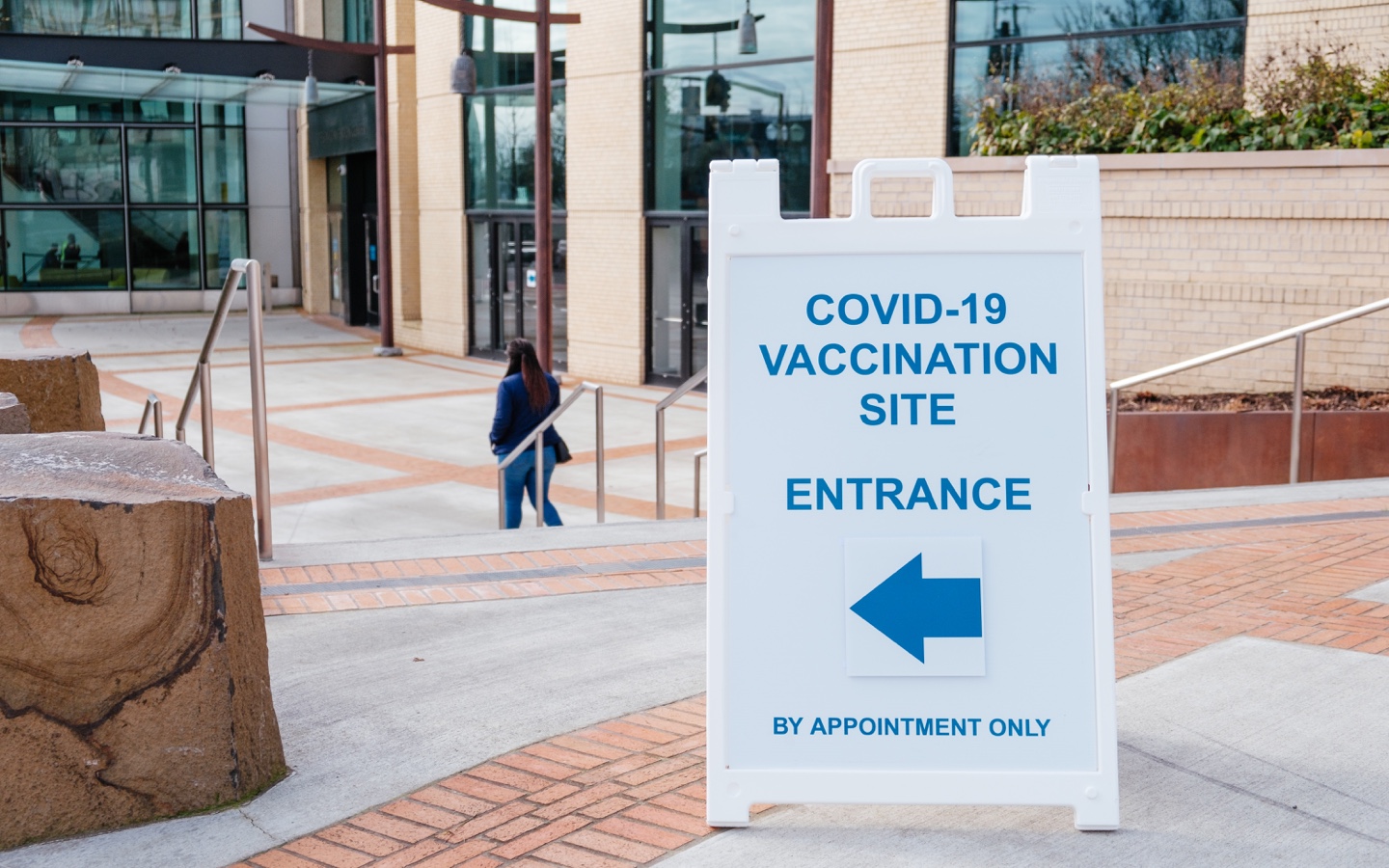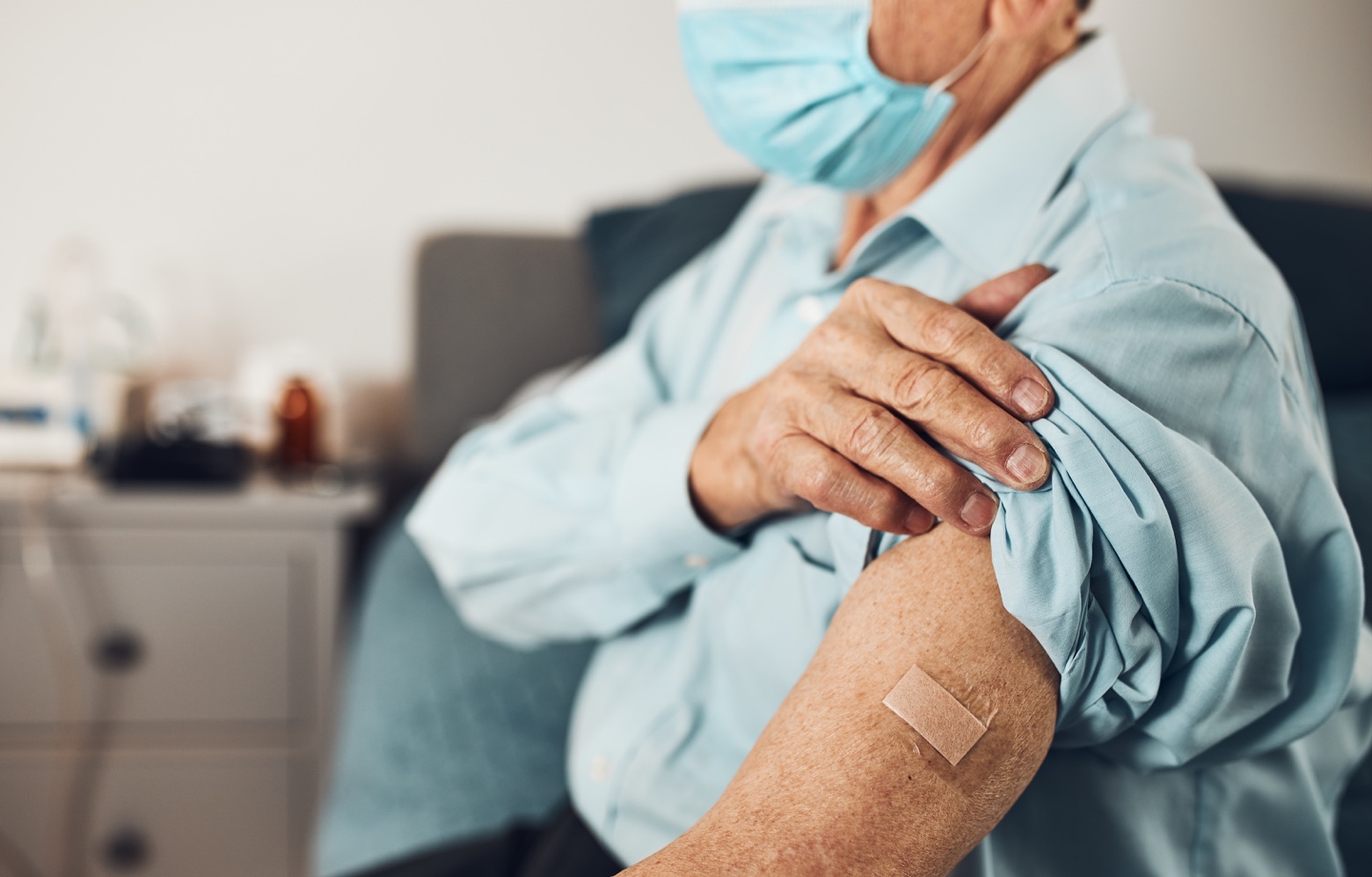When it comes to the Covid vaccines, there are countless misleading stories and opinions floating around. Here are the facts.
There’s no shortage of information about the Covid vaccines — and that’s not necessarily a good thing. The steady stream of news can help you figure out when you’ll be eligible for a vaccine and how to access it once you are. But it also makes it easy for stories to get, well… twisted.
Social media is filled with uninformed ‘hot takes’ about the vaccine. Well-meaning friends repeat out-of-context talking points they hear or read online. And because the vaccines are so new, there’s still a lot that is yet to be understood, even by experts. It can all feel unsettling at a time we’re craving certainty and stability.
Read more: How to Improve Your Home’s Air Quality
To bring some clarity to the conversation, we’ve rounded up some of the most commonly asked questions about the vaccines. We’re addressing everything from, “Can I stop wearing a mask after getting the vaccine?” to “Will I get sick from it?” (Spoiler: No), so you can feel more confident in your decisions.

What Vaccines Are Available & How Are They Different?
There are currently three Covid-19 vaccines authorized in the U.S., and the producers include pharmaceutical companies Pfizer-BioNTech, Moderna, and Johnson & Johnson. None of them have been approved or licensed by the U.S. Food and Drug Administration (FDA), but they have been authorized for emergency use. To make that decision, the FDA analyzed data from clinical trials and determined that the benefits outweigh the risks — all three vaccines are safe to take. This process typically takes a year or longer.
The main difference between the available vaccines is the level of reported efficacy in preventing Covid-19 illness — the Johnson & Johnson vaccine is 72 percent effective compared to Moderna’s 94 percent and Pfizer’s 95 percent. That said, those efficacy rates don’t paint the full picture. The rates essentially refer to the vaccine’s ability to prevent all infections (including very mild cases). So, in reality, all three options are nearly equally effective in preventing serious illness due to Covid-19, according to the New York Times.
The vaccines also vary in the number of shots required. The Johnson & Johnson vaccine is given in a single dose, while Moderna’s and Pfizer’s are administered in two doses, spaced three weeks and a month apart, respectively. However, they all produce similar side effects (more on that below).
Read more: How to Buy a Non-Toxic Mattress
Can the Vaccines Give Me Covid-19?
Like other types of inoculations, the Covid-19 vaccines will not give you the virus — none of the options on the market right now contain the viral strain that causes infection.
That said, they do have the potential to cause side effects — the most common being pain at the injection site, tiredness, headache, muscle pain, chills, joint pain, nausea, vomiting, and fever, according to the FDA. Notably, most people who have received the Pfizer or Moderna vaccine experience these symptoms after the second injection. Sound bad? Experts say these symptoms often are short lived. Plus, they’re nowhere near as bad as becoming infected with a serious case of Covid-19, which to date has killed more than 500,000 people in the U.S.
When you’re preparing to get your vaccine, schedule some down time for a day or two after your second injection so you can sleep off the symptoms. Or, plan your second shot for a Friday, when you have a weekend to recuperate.
Once I’m Vaccinated, Can I Stop Wearing A Mask & Social Distancing?
Nope. You need to continue wearing a mask, keep your circles small, and practice social distancing. We still don’t have enough information to determine whether the vaccine prevents transmission. And initial clinical trials have shown that it’s only effective at protecting people from becoming seriously ill from the virus.
Also, the vaccine remains in short supply, so even if you get a vaccine, the people you come in contact with might not be vaccinated. That, and not everyone qualifies to receive it. For instance, at this point, there are no vaccines authorized for children.
Another good reason to continue masking up: It’s unclear just how long your immunity will last once you get vaccinated, says Katherine O’Brien, a professor at the Johns Hopkins Bloomberg School of Public Health. So it’s important to continue following guidelines set by the Centers for Disease Control and Prevention (CDC).
I’ve Already Had Covid-19. Do I Still Need The Vaccine?
The short answer: Yes. Because it’s not clear how long immunity lasts after infection, it’s a good idea to get vaccinated even if you’ve already had (and recovered from) the virus, according to the CDC. Depending on how you were treated for Covid-19, you may need to wait a few months before receiving the vaccine. Check with your health care provider for those details.
Will This Vaccine Protect Against Covid-19 Variants?
Experts are still learning about the Covid-19 variants and how effective the vaccines will be in protecting against them. Though, many believe the three authorized vaccines will provide protection from the new viral strains.
No vaccine is perfect, including those developed for Covid-19. The point is, they’ll keep you from becoming seriously ill or hospitalized if you do still contract the virus. And the more people that are vaccinated, the sooner we can drastically minimize widespread risk and begin to heal from the devastating effects of this global pandemic.

Shop Pillows
The Essential Organic Pillow Collection
Gentle, breathable, non-toxic support.






